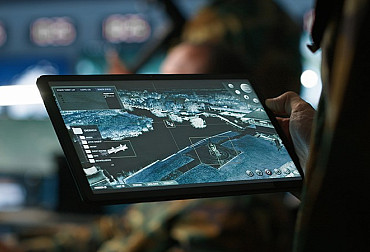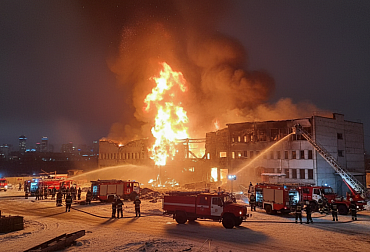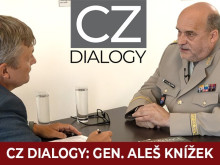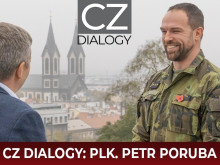Gen. Jiří Roček: What I have set out to do is slowly coming true
The Military Police will gain new competencies this year. Among other things, it will be allowed to intervene against drones, seize driver's licenses or enter enter private property if necessary to protect life or health. The amendment, which will amend Act No. 300/2013 Coll. on the Military Police, will also tighten penalties for misuse of the uniform and introduce a ban on photographing selected important military objects. This change, which responds to the deteriorating security situation in Europe, is welcomed by the Chief of the Military Police, Major General Jiří Roček, who was a guest on the latest episode of our discussion program CZ DIALOGUES.
Video: Interview with the Chief of the Military Police, Maj. Gen. Jiří Roček / CZ DEFENCE
According to him, the tasks that the VP chief set himself when he took office almost two years ago are being fulfilled. These include in particular internal stabilisation, the conception and construction of the Military Police until 2035 and the aforementioned amendment of the Military Police Act. "If I were to evaluate it, I am satisfied. What I set out to do is slowly coming to fruition," says the Chief of the VP. And he adds that the team across all services of the VP has managed to stabilize despite the increase in assignments related to Host Nation Support, i.e. servicing and accompanying foreign armies as they move through our territory. It is the change in the security situation that dictates the new tasks defined by the amendment to the Military Police Act. However, it also brings up minor misunderstandings that have been interpreted by the media. "There were two such things, either the photographing of military objects or the penalties for misuse of military uniforms. I think that together with the minister we tried to set the record straight in the media. It is not about any kind of repression or that we want to bully anyone, but it is necessary precisely with regard to the security situation and the protection of the armed forces," explains General Roček.
The military police are also active abroad, not only in Lithuania, Latvia, Poland and Slovakia, but also in the protection and escort of the Ambassador in Kiev. Last but not least, it works independently within the Military Police unit in Kosovo, where it cooperates with the Italian Carabinieri within the Multinational Specialised Unit. "Expeditionary groups, which operate within the framework of individual tasks of the Czech Armed Forces group, are de facto the right hand or support of the commander of the Czech Armed Forces Task Force, that is, in terms of their competence in relation to Czech soldiers," Major General Roček specified the work of the police officers. This includes maintaining discipline and order in the region or escorting various convoys. Focusing on the work of the unit in Kosovo, the fourth rotation of military police officers took place this January on the basis of the approved mandate. "The main task of the unit is to strengthen the security situation in Kosovo, especially Crowd Riot Control (CRC) capabilities, as well as other policing capabilities in the execution of the tasks of the stabilisation operation. Two members of this unit are serving with the Multinational Military Police Unit, which is directly subordinate to the Provost Marchal KFOR, and which performs tasks across the entire territory of Kosovo," General Roček specified. Most of the work is in the north of the territory around Mitrovica.
Let us return to the amendment to Act No. 300/2013 on the Military Police. According to General Roček, this amendment has been in preparation for more than 8 years. "We have made a rather thorough, in-depth analysis of the current state of the Military Police. One of the things that emerged is the lack of legislative support. If I want people to perform their tasks, I have to create conditions, not only social, economic, material, but I have to have legislative support as well," says the VP chief. And it is in legislation that military police officers are slipping. As already mentioned, the drafters of this norm had to explain to the public how it is about photographing military objects and possible fines, as well as wearing military uniforms in public. "Probably the best example.One day, as part of your normal routine in Prague, a gentleman will call you at the permanent operations department of the Military Police and say: Soldiers are demonstrating there, what will the Military Police do about it? That is exactly the situation. The public does not know that professional or active-duty soldiers are apolitical and cannot promote any political party," the general said. And it is this group of people who misuse the dress and markings of career soldiers, and even military police officers, who must be warned strongly enough against such actions. On the other hand, according to Chief Roček, there is no need to worry about fishermen, or people who use camouflage clothing as part of their recreational use, or hikers.
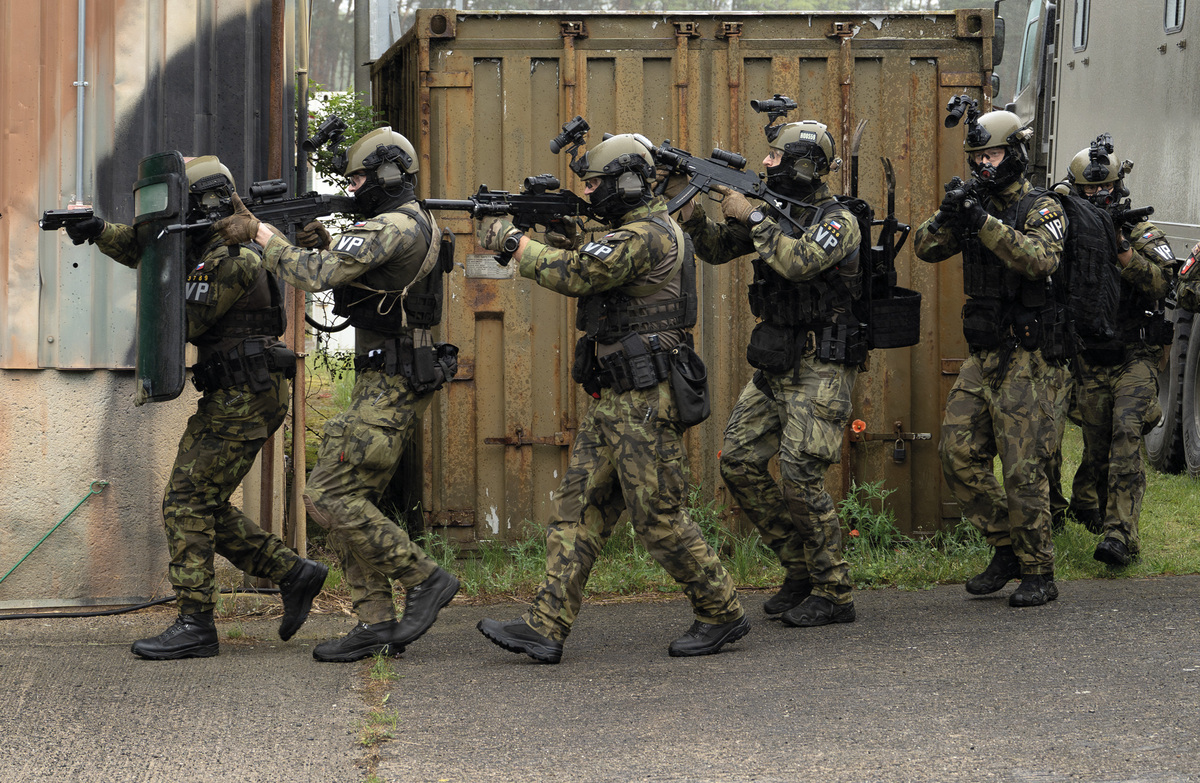
The military police, like the army, has prepared its construction concept until 2035. The original one was prepared in 2017. Its update was, of course, necessitated by changes in the security situation. "I want to say that the construction concept is not just some mindless conceptual document, but it is a document that is based on the strategic documents of the Czech Republic, and especially on the Concept of Construction of the Army of the Czech Republic until 2035," says Roček, who praises the way the document was prepared. Of course, like the army document, he envisages revisions after two and four years. "Everything depends on the security situation as such. And I must say that we managed to do it in record time within eight months," Roček praises. As with the entire army, staffing is an important part of the concept. In addition, there is often talk of a competitive environment between the security forces, i.e. the Police of the Czech Republic and the Municipal Police. "I would say that there is competition. Many officers, especially from the Police of the Czech Republic, are moving to our ranks, especially to the ranks of the criminal service, and we quite welcome that. These are people who have had their practice," General Roček said.
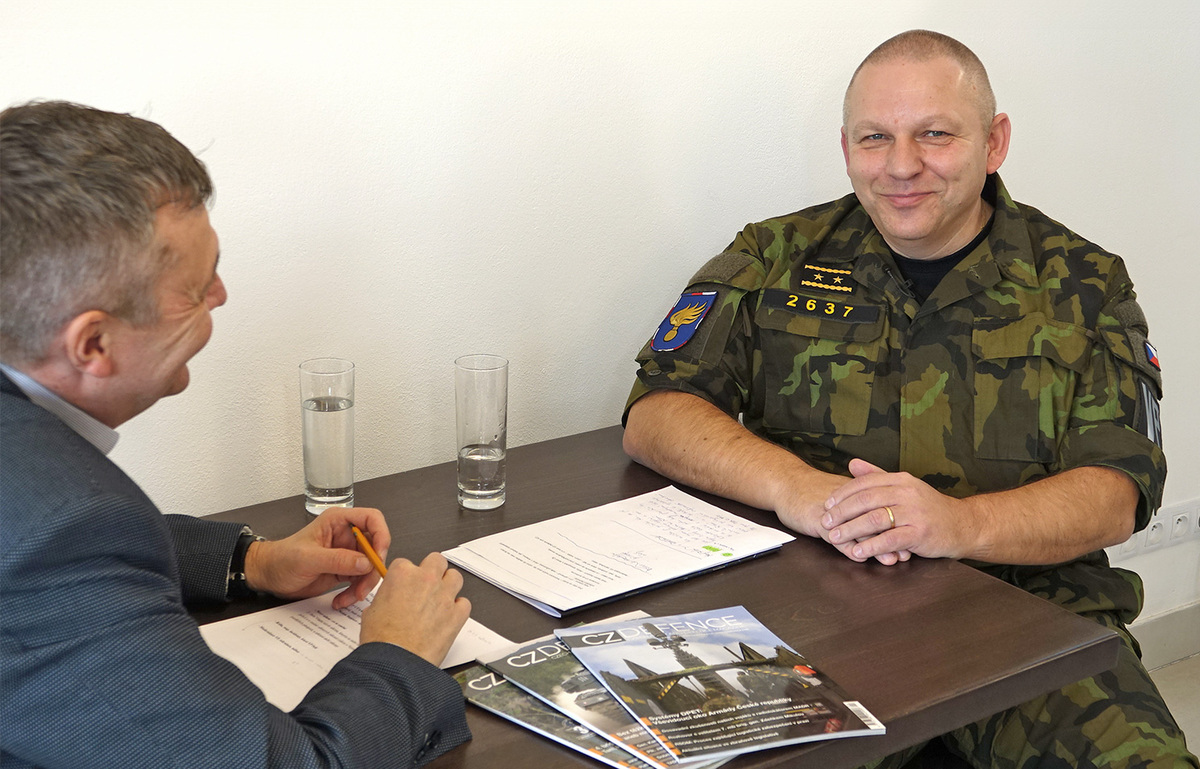
Among other things, we asked the Chief of the Military Police for his opinion on the incident in Kenya where a Kenyan soldier was injured during a training course conducted by Czech military specialists: "The general public and civilians may not know that as Chief of the Military Police I am not a police authority and I am not a person involved in criminal proceedings. I have to respect the criminal law. As far as the Kenya case is concerned, I can probably only say that this case is in the non-public part of the criminal proceedings, and the District Prosecutor for Prague 6 continues to reserve the right to provide information. That is all I can say, I must fully respect it," concluded Major General Jiří Roček.
If you want to know more, listen to the full interview with the Chief of Military Police at the beginning of this article.











